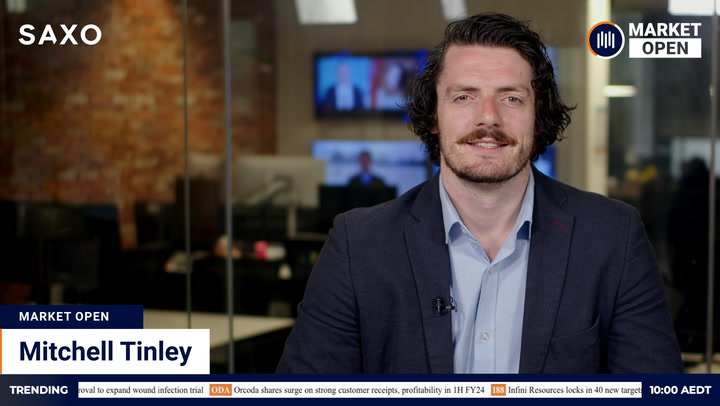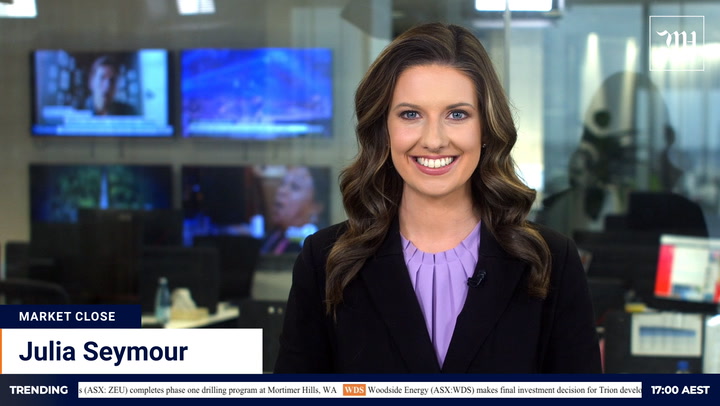The ASX’s three-week loss surpassed 30 per cent this morning as the benchmark index crashed to its lowest level in four years.
The ASX 200 tumbled 431 points or more than 8 per cent to 4874 mid-morning before trimming its loss to 379 points or 7.2 per cent by the halfway mark. At its low, the ASX 200 had fallen 2,289 points or 31.9 per cent from its February 20 peak in just 16 brutal sessions, erasing four years of gains. More than half those points evaporated this week, which – barring a miraculous afternoon reversal – looked set to be the worst on record.
Today’s decline followed a historic night on Wall Street, where the Dow Jones Industrial Average suffered its biggest fall since the notorious 1987 Black Monday crash that ended an era. The Dow shed 2,353 points or 9.99 per cent as a travel ban on flights from Europe and a paucity of concrete measures to calm financial markets triggered panic selling. The broader S&P 500 dropped 261 points or 9.51 per cent, joining the Dow and Nasdaq in a technical bear market.
Not even the launch by the US Federal Reserve of a round of quantitative easing that some commentators dubbed “QE4” calmed the jitters. US index futures continued to trade lower this morning. S&P 500 index futures were recently off 63 points or 2.5 per cent.
The numbers on the local market require a strong stomach to read: the financial sector fell 9.3 per cent, industrials 8.7 per cent and materials 7.7 per cent. Health was the closest thing to a haven with a drop of 2.7 per cent. Gold stocks – supposedly a safe harbour in an economic storm – plunged 14.4 per cent. The market’s “fear gauge” – the VIX – climbed 84.2 per cent to its highest level since the 2011 European debt crisis.
On the ASX 200, just three stocks edged positive: drug company Mayne Pharmaceutical gained 4.6 per cent, student placement service IDP Education 2.7 per cent and hearing aid specialist Cochlear 0.2 per cent.
Asset managers Challenger and IOOF slumped 17.6 per cent and 12 per cent, respectively. Travel agent Flight Centre shed 14.9 per cent after withdrawing its fiscal year guidance, citing uncertainty caused by the coronavirus. Sydney Airport crashed 16.5 per cent. European shopping centre owner Unibail-Rodamco-Westfield tanked 18.6 per cent after a poorly-received profit result sent its Netherlands listing down 21.6 per cent.
The banks hit new multi-year lows: ANZ fell 11 per cent to its lowest point since July 2009; NAB 12.6 per cent to within 50 cents of its GFC nadir; Westpac 11.6 per cent and also at a level last seen in March 2009; CBA 8 per cent and the pick of the four at a seven-year low.
While resilience in Chinese iron ore markets encouraged Andrew Forrest to buy more Fortescue shares this week (more below), the other major ore miners did not fare as well. BHP dropped 7 per cent and Rio Tinto 3.1 per cent. Gold giant Newcrest tanked 13.7 per cent. Oil sector leader Woodside shed 7.9 per cent.
China continued to outperform regional peers in Asia. The Shanghai Composite fell a relatively mild 3.65 per cent, compared to falls of 6.4 per cent on Hong Kong’s Hang Seng and 9.27 per cent on Japan’s Nikkei.
Brent crude futures slumped 71 cents or 2.1 per cent this morning to $US32.51 a barrel. Gold declined $28.60 or 1.8 per cent to $US1,561.20 an ounce.
The dollar bounced 1.1 per cent to 63.03 US cents after hitting a new decade-low overnight.
What’s hot today and what’s not:
Hot today: “Hot” is going too far, but a rise on a day like this, however fleeting, is notable. Iron ore miner Fortescue (ASX:FMG) bucked the market downtrend after Andrew Forrest advised the stock exchange he has taken advantage of these torrid conditions to increase his stake in the company. Forrest picked up more than 26 million shares in recent weeks to increase his ownership to 36.25 per cent from 35.22 per cent. Iron ore markets have shown remarkable resilience during this downturn, with the spot price holding above US$90 a dry ton while oil and base metals fell to multi-year lows. FMG’s share price jumped 9 per cent before fading to a loss of 0.8 per cent in a rotten market.
Not today: Shares in corporate bookmaker PointsBet (ASX:PBH) hit an all-time low after sporting bodies around the world announced a wave of postponements, suspensions and cancellations in the wake of the Covid-19 virus. The problem for bookmakers is obvious: fewer sporting events means fewer bets. PBH acknowledged the problem in an ASX release this morning, noting its balance sheet was strong and debt-free, and its marketing spend flexible. Punters voted with their feet, sending the share price to an all-time low $1.88.







